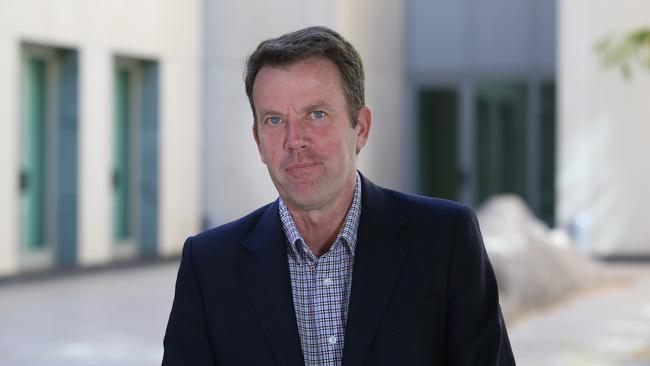There’s no excuse for university inaction on free speech
Universities with their heads in the sand on the issue of free speech are failing Australia.

As our nation enters much-needed debates on freedom of religion and freedom of the press, it’s time for our universities to stand up and defend free speech and freedom of academic inquiry.
They should start by implementing Robert French’smodel code for the protection of freedom of speech and academic freedom in Australian higher education providers .
Australia has a first-class higher education sector, providing our nation with much-needed export income and world-class research. I’m proud the Morrison government will continue to provide record levels of funding — more than $17 billion this year alone — to ensure the sector can continue its excellent work.
Our universities train our teachers and nurses, our doctors and engineers, our scientists and entrepreneurs, and drive our country’s research.
In this way, they contribute enormously to Australia’s success as a nation and, importantly, they help to shape Australia’s culture. The signals our universities send help to shape the society in which we live and the society our children will inherit.
So, it is not surprising that reports over recent years of incidents regarded as affecting free speech on university campuses have generated concern within the broader Australian community.
As French, the former High Court chief justice who is now chancellor of the University of Western Australia, observed in his recent Independent Review of Freedom of Speech in Australian Higher Education Providers, “even a limited number of incidents seen as affecting freedom of speech may have an adverse impact on public perception of the higher education sector which can feed into the political sphere”.
The growing sense that some students at universities and Australians more broadly are self-censoring out of fear they’ll be shouted down or condemned for expressing sincerely held views and beliefs, or for challenging widely accepted ideas, should concern us all.
While French correctly notes claims of a “crisis” on Australian campuses are not substantiated, if this is where we are headed as a society then we will end up a more divided and less harmonious Australia — and we should do everything we can to avoid that.
Some taxpayer-funded universities insist there is simply no problem. Some point to the broader cultural problem and insist that it’s not their problem or it is too big for them to deal with alone. Some are perhaps fearful that reinforcing protections for free speech on their campuses would be an admission that they’ve somehow failed or done something wrong. But by burying their heads in the sand they are failing Australia and the students who will define our nation’s future.
The fact there may be a broader cultural problem shouldn’t be an excuse for inaction on the part of universities. In fact, it should be the very reason to act and send a clear signal to students and to the broader Australian community that not only are universities places of robust and open inquiry, but that respectful discussion, debate and disagreement is a fundamental Australian value that lies at the heart of our democratic system.
The French review sets out a thorough and thoughtful analysis of the issues at play, and everyone with an interest in this important public matter should read it in detail. French analyses a range of existing rules and policies that many universities have pointed to as providing sufficient protection for staff and students.
He concludes: “Many of the higher education rules and policies mentioned in the report use broad language capable of impinging on freedom of expression.” While that may not be their aim, the possibility is concerning and should be viewed as a call to action.
French’s proposed model code is clear and carefully crafted, embodying a set of umbrella principles applicable to all higher education providers. It delivers on its three objectives: ensuring that freedom of speech is a paramount value of universities; ensuring that academic freedom remains their defining value; and affirming their institutional autonomy.
I urge all Australian universities and other higher education providers to implement the model code to send a clear and unambiguous signal to staff and students at our taxpayer-funded universities and to the broader community of the vital importance of free speech and academic inquiry.
Dan Tehan is the federal Education Minister.



To join the conversation, please log in. Don't have an account? Register
Join the conversation, you are commenting as Logout